Grilles, registers, and diffusers are essential components of an HVAC system. Grilles are generally found on walls or ceilings and protect air intake openings and ensure unrestricted airflow, while registers are positioned on the outlet side of the ductwork and are responsible for delivering conditioned air into the living space and providing control over airflow direction. Diffusers are typically installed in ceilings or walls and are designed to provide a comfortable and balanced airflow pattern that disperses conditioned air evenly in multiple directions. When it comes to selecting grilles, registers and diffusers for an HVAC system, there are a lot of things to consider. You want to make sure you choose a product that is durable, efficient, and aesthetically pleasing and improves the airflow and energy efficiency of a home.
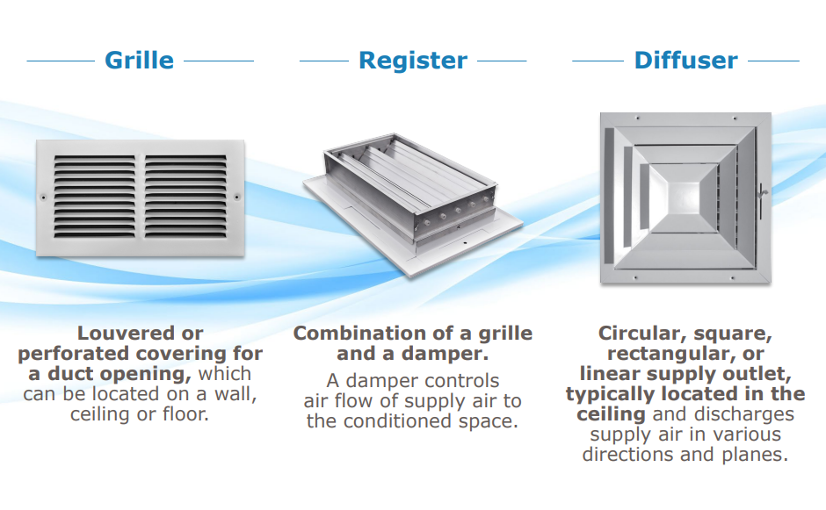
1/ Size
The size of the register is crucial as it determines the amount of air that flows through it. Make sure you measure the size of the duct opening before buying a register. If the register is too small, it will restrict the airflow, while a too large register will allow too much air to pass through, leading to inefficiency.
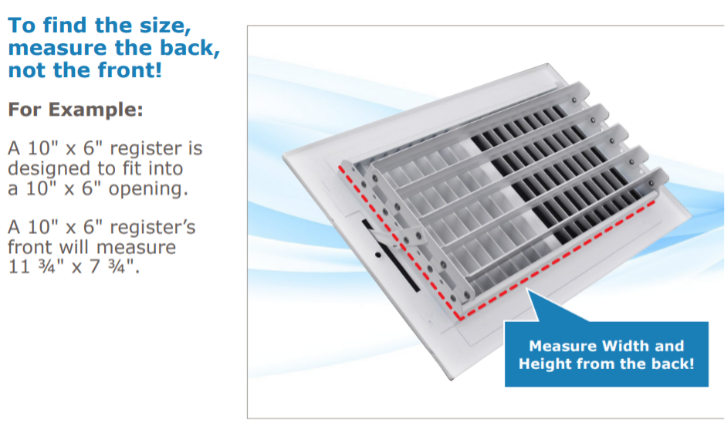
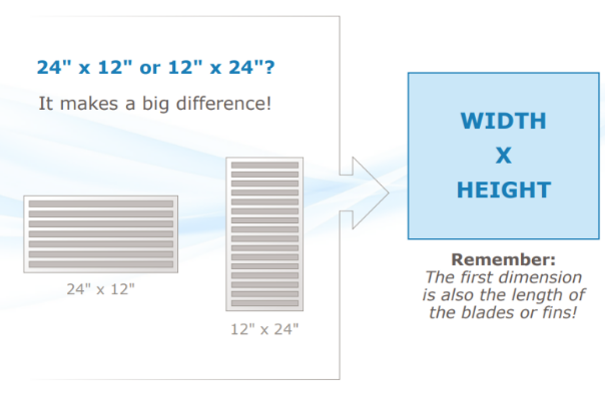
2/ Material
Registers are made from different materials such as aluminum, brass, and plastic. The material you choose will depend on your preference and the location of the register. For instance, if the register is in a high traffic area, you may want to choose a more durable material.
3/ Airflow
The airflow of the register is another crucial factor to consider. The airflow is measured in cubic feet per minute (CFM). Make sure you choose a register with the right CFM rating to ensure that it can handle the airflow of the HVAC system. Improving the airflow can reduce the workload on the system
4/ Noise
Dampers can act as mufflers when used in an HVAC system since they are designed to regulate airflow but also muffle sound over different ranges. Incorporating registers, grilles and diffusers together helps to ensure a smoother flow throughout the space, which can reduce mechanical noises that would otherwise be heard through the vents.
5/ Energy Efficiency
The right combination of GRD’s allows for efficient air distribution and provides the flexibility to control airflow direction and volume. Optimal airflow reduces the workload on the HVAC system, which helps improve energy efficiency. That translates into lower energy bills for your customers!
Benefits of TRUaire GRD’s
1/ Durability
TRUaire grilles and registers are made from high-grade aluminum and metal with zinc-coated rivets, and a powder-coat finish that is far superior to spray painting or electro dipping. This rust and corrosion-resistant 100% powder-coat is applied to all parts prior to assembly to ensure the smoothest operation. Superior performance that lasts!!!
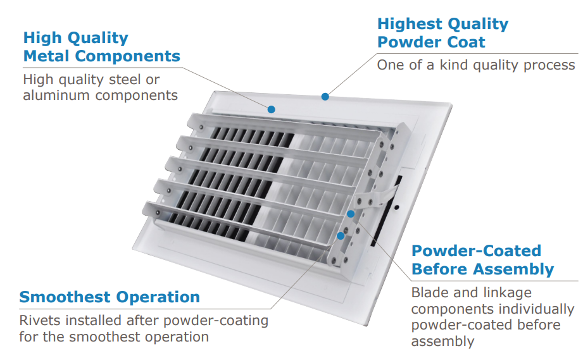
2/ Less Noise
The SmoothGlide Technology lessons the vulnerability to rust; therefore, the paint is less likely to chip or flake and the Revit tension holds steady. The result is less chance for rattle from vibration!
3/ A complete line of models in a variety of styles
TRUaire grilles and registers come in different styles, including floor, wall, and ceiling grilles and registers. The style you choose will depend on the location of the grille or register and the design of your home. For instance, if you have a modern home, you may want to choose a sleek and minimalist grille or register.
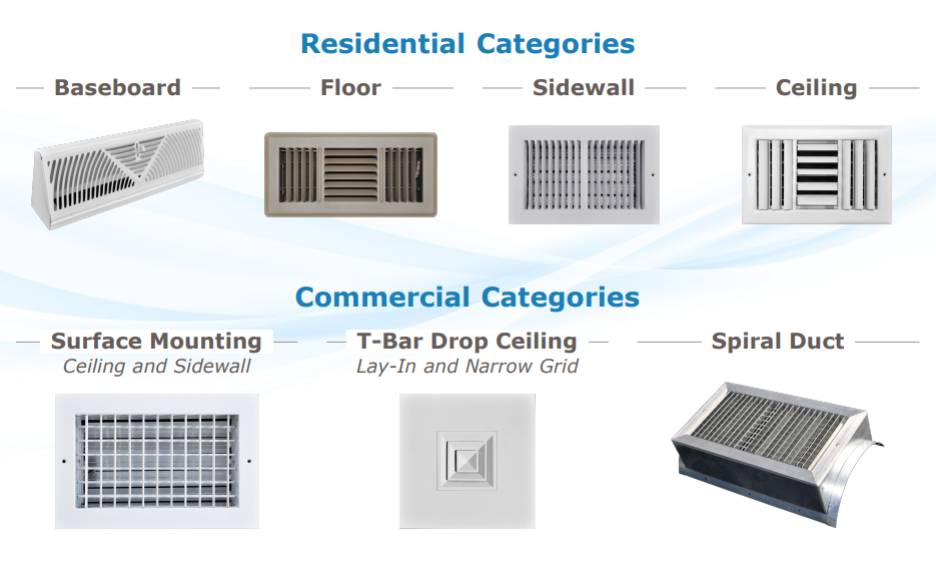
Choosing registers for an HVAC system requires careful consideration of size, material and style to create the right airflow and noise level. TRUaire grilles and registers are highly durable and available in a variety of options to improve the airflow and energy efficiency of any home.

